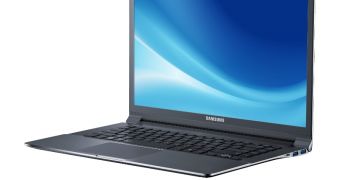Linux is a popular operating system, especially for businesses, but users of certain Samsung laptops have been getting nasty shocks when installing the OS on those particular computers.
The problem has to do with the less straightforward method of installing Linux and the SecureBoot feature of UEFI BIOS.
Basically, trying to install the open source operating system can brick the notebook beyond repair.
OS installation mishaps can usually be repaired by reinstalling the software from the beginning, but that won't work here.
The error leads to a corruption of the BIOS that is only discovered after the installation process is finished and the system is rebooted.
Bricked systems cannot recover. They need the motherboard replaced entirely since the BIOS chip is rendered useless.
Changing Linux Kernels can avoid this disaster, but it doesn't eliminate the problem since it is a hardware issue.
Some UEFI BIOSes have some free space that can be written to in the event of a crash. In other words, it stores error logs and such.
When too many characters are written there, however, the EFI ROM becomes flooded and cannot recover after rebooting.
This is a design failure in UEFI, truth be told, since the problem could have been avoided by making the address space of the writable CMOS RAM totally separate from the boot code.
At the end of the day, Linux isn't at fault at all, since it only takes random data scribed on the UEFI to brick the affected Samsung notebooks. This has been demonstrated in Windows.
In layman terms, Samsung's Laptop UEFI bug can crop up in any operation that needs data logs to be written in the UEFI BIOS. The company should be able to develop a firmware fix, but no word has been heard of such an endeavor as of yet. More coverage here.

 14 DAY TRIAL //
14 DAY TRIAL //